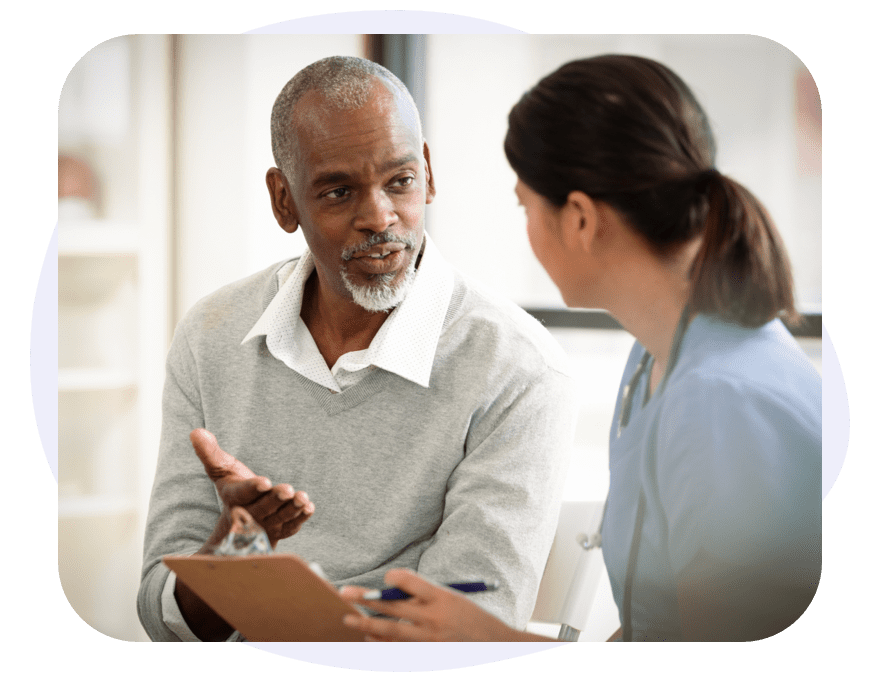Know the side effects of your cancer treatment
Side effects can differ from person to person, even among people getting the same type of cancer treatment. At each visit, talk with your doctor about your treatment and tell them how you are feeling.
Track how you are feeling to be able to talk with your doctor about side effects

You may have side effects or symptoms throughout your cancer journey. These can be caused by cancer or your treatment. Tell your doctor right away about any side effects or symptoms you’re feeling. Your doctor can help you get care and treatment so that you can manage your side effects.
Use the tips on this page to help manage a few common side effects. Always tell your doctor about side effects or symptoms and follow their advice.
You are encouraged to report negative side effects of prescription drugs to the local health authority by calling the FDA at 1-800-FDA-1088. You may also report to the FDA online.

Your doctor can help you when they have a good understanding of your day-to-day life. Use a tool like the Symptom Tracker to write down how you’re feeling each day. Bring it to your visits to talk with your doctor.
Download and print theFrom the National Cancer Institute (NCI)
The information below is based on information originally published by the National Cancer Institute (NCI), the US government’s main agency for cancer research. Although the advice on this page is meant to be a guide, you should always follow the advice from your doctor first.
People often describe cancer-related fatigue as feeling extremely tired, weak, heavy, run down, and having no energy. Resting does not always help with cancer-related fatigue. Cancer-related fatigue is one of the most difficult side effects for many people to cope with.
Fatigue is a common side effect of many cancer treatments, including chemotherapy, immunotherapy, radiation therapy, bone marrow transplant, and surgery. Conditions such as anemia, as well as pain, medications, and emotions, can also cause or worsen fatigue.
Ways to manage fatigue:
Diarrhea means having bowel movements that are soft, loose, or watery more often than normal. Cancer treatments, or the cancer itself, may cause diarrhea or make it worse. Some medicines, infections, and stress can also cause diarrhea.
If diarrhea is severe or lasts a long time, the body does not absorb enough water and nutrients. This can cause you to become dehydrated or malnourished.
Ways to manage diarrhea:
Nausea is when you feel sick to your stomach, as if you are going to throw up. Vomiting is when you throw up. Controlling nausea and vomiting will help you to feel better and prevent more serious problems such as malnutrition and dehydration.
Your doctor or nurse will work to figure out what is causing your symptoms. Medicines called anti-nausea drugs or antiemetics are effective in preventing or reducing many types of nausea and vomiting.
Ways to manage nausea and vomiting:

Side effects can differ from person to person, even among people getting the same type of cancer treatment. At each visit, talk with your doctor about your treatment and tell them how you are feeling.
What are the possible side effects of my treatment?
What side effects may happen between treatment sessions?
How can I manage side effects?
Do you have a patient brochure that I can take with me that explains my treatment and possible side effects?

Be the first to know when new information and articles become available.
Register now